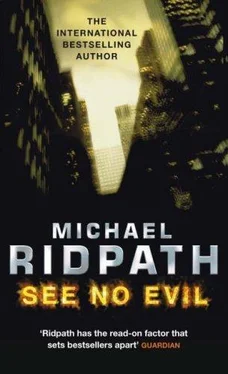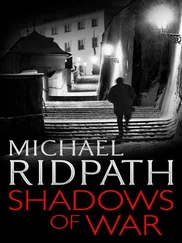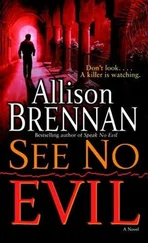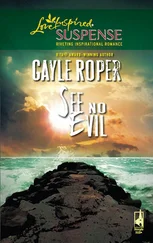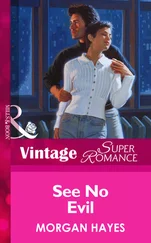‘Well done,’ Calder said, although he was actually a little disappointed. The dead people weren’t of much value, and he knew about Visser and Havenga. Du Toit might be a useful lead.
‘So,’ said Zan. ‘How do you know the diary is hidden at Kupugani?’
Calder explained.
They flew east over the wide brown plain of the high veld, over the peaks and gorges of the Drakensberg mountains to the bush veld on the other side. Trees and scrub stretched from the high escarpment behind them as far as the eye could see, like a sparsely planted forest. Soon the aircraft descended and joined the circuit above a clearing with a stripe of tarmac at its centre. Calder could see a cluster of buildings that was the main camp about a mile to the south. On final approach the pilot pointed out a small herd of five elephants grazing on the trees and then the aircraft was on the ground. They disembarked, and the aircraft taxied back to the runway threshold and took off, taking the group of German tourists on to their destination.
A Land Rover approached them driven by a young ranger who introduced himself as Darren. They piled on board and he drove them off to the main camp.
‘Whose are those?’ Zan asked, pointing towards three single-engined aircraft parked under a makeshift hangar. There were two Piper Warriors and a Cessna 172.
‘They belong to some of the guests,’ the ranger replied.
‘You could have flown up yourself, Zan,’ Cornelius said.
‘I would have if I’d had time.’
‘Do you fly?’ Calder asked.
‘Yes, every now and then,’ she said. ‘I own a Saratoga, which I keep at Stellenbosch. It would take a couple of days to fly from Cape Town to here, though.’
The Land Rover lurched along a rough track, surprising a warthog on its way. They soon approached the camp, which comprised half a dozen thatched wooden cottages clustered around an old farmhouse. As they climbed out of the Land Rover a thin woman with short grey hair and a tanned, weatherbeaten face emerged from a door marked ‘Office’ to greet them. She was wearing a khaki tunic and trousers, just like the ranger.
She approached Cornelius first, holding out her hand. ‘Welcome to Kupugani,’ she said. ‘I’m Phyllis Delahay. You must be Mr van Zyl.’
‘That’s right. Thank you for seeing us at such short notice,’ Cornelius said.
‘Not at all. I must admit I was surprised I didn’t see you eighteen years ago. Now, introduce me to your companions.’
Cornelius was a little taken aback to be put so firmly in his place, but he introduced Zan, Calder and Benton.
‘Yes, I remember you, of course,’ Phyllis said to Benton. ‘I do hope the police weren’t too hard on you?’
Benton smiled. ‘They were pretty rough, Mrs Delahay. But they let me go in the end. This is the first time I have been back to South Africa since then.’
‘It’s changed. For the better. And you?’ The woman turned her eyes on to Calder. They were searching; hers wasn’t just a polite enquiry, she wanted to know what he was doing there.
‘I’m an old friend of Todd van Zyl’s wife,’ he said. ‘Todd is Martha’s son.’
‘This is the man who has been asking the awkward questions about her death,’ Cornelius said.
Phyllis smiled quickly. ‘Ah, yes, Libby mentioned she had met you. And you’re Martha’s daughter?’ she said, turning to Zan.
‘Stepdaughter,’ Zan said.
‘I see.’ Phyllis seemed to disapprove. ‘Will you have some tea?’ she asked.
She indicated some rattan chairs on a verandah overlooking a small watering hole. Monkeys played in the trees above. The chairs caught the afternoon sun, which was warm without being hot. Strange bird calls, unfamiliar squawks, whoops and trills, emanated from the bush surrounding the camp on all sides. Calder wondered how far away the elephants were that they had spotted from their aeroplane. A uniformed waiter appeared with a teapot, followed by a waitress with some cake.
‘A nice place you have here, Mrs Delahay,’ Cornelius said.
‘Thank you. My father bought it in the 1930s. We used to use the farm just for ourselves and our guests. As time went on we began to take in tourists. Now Kupugani has become big business. Financially that’s good, of course, but I sometimes think it’s unfortunate.’ She sipped her tea. ‘All the guests have just left for the afternoon game drive. They won’t be back until after dark.’
‘As I told you over the telephone,’ Cornelius said, ‘we’ve come here to try to find out more about how my wife died.’
‘Yes, I understand,’ Phyllis said. ‘But frankly I’m a bit surprised you’ve all come together.’ She raised an eyebrow at Benton.
‘Martha’s death upset all of us,’ he said. ‘Cornelius and I have been talking; he knows why Martha and I were here. I’d like to help him.’
‘Do you have any idea who shot her?’ Zan asked.
Phyllis shook her head. ‘No. I know it wasn’t guerrillas as the police claimed. My trackers found footprints from a single man, wearing expensive boots. From the size of his feet they guessed he was of below-average height. I told the police this, of course, but they ignored me. I decided to let it drop. I knew that you were a powerful man, Mr van Zyl, and I expected to be hearing from you. When I didn’t, well, I assumed that you had colluded in the police’s cover-up.’
‘An understandable assumption, but mistaken,’ Cornelius said.
Benton cleared his throat. ‘Martha had a diary. It was a black notebook about this big.’ He indicated the size with his hands. ‘We are pretty sure that it contains some important clues as to who killed her. I grabbed it when I ran away, and hid it. We’d like to look and see if it’s still where I put it.’
‘Heavens,’ said Phyllis. ‘And where was that?’
‘In a maintenance shed near the cottage.’
‘Is the shed still there?’ asked Cornelius.
‘Yes, it is,’ Phyllis said.
‘Has it been cleared out over the last twenty years?’
‘No,’ Phyllis replied, after a moment’s thought. ‘Things will have been brought in and taken out. But it hasn’t been repainted, or even repaired that I can remember.’
Cornelius exchanged glances with Calder. This was looking good. ‘Can we see it?’
‘I don’t see why not.’ Phyllis put down her tea cup and went over to a wall where three bolt-action rifles rested in racks. She took one, loaded it with five rounds, picked up a small backpack and headed off into the bush. ‘Follow me.’
She led them along a sandy trail into the scrub. On either side termite mounds rose precariously, some of them ten feet high. Despite her age and size, Phyllis seemed supremely confident in the bush.
‘Do you really need the gun?’ Calder asked.
‘This camp is unfenced,’ she said. ‘You never know what you’ll run into. See that?’ She paused and pointed to some marks in the sandy track. ‘That’s leopard.’ She studied the print for a couple of seconds. ‘Probably came through here last night. We’ll be fine during daylight, but you do have to be careful when it’s dark.’
‘Would you shoot? If we did run into something?’
‘Oh, no,’ Phyllis said. ‘Only as a very last resort. The important thing to remember is not to run. If you hold your ground, you’ll be OK. Mind you, this is a powerful rifle. They tell me it will drop a charging elephant, although I’d rather not test that one out.’
They walked through the trees for a couple of minutes before they came to a cottage, much like the others in the camp. It stood by itself, overlooking a dry river bed. As they approached a pair of hornbills flew from a tree, kicking up a fuss as they went, their flared tail feathers balancing their large beaks in ungainly flight. To the west it was just possible to see the peaks of the Drakensberg mountains in the distance.
Читать дальше
